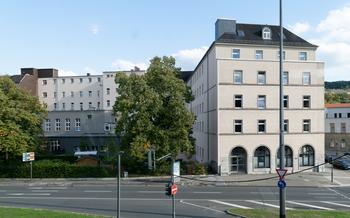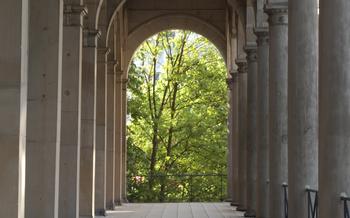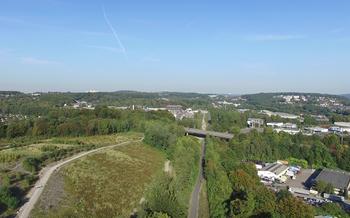Nestled in the picturesque Wupper Valley, Wuppertal boasts a unique blend of nature, history, and urban flair. Explore the city's iconic suspended monorail, the Schwebebahn, an engineering marvel that offers breathtaking panoramic views. Immerse yourself in art at the Von der Heydt Museum, showcasing a diverse collection from Old Masters to contemporary works. Discover the Engels House, the birthplace of Friedrich Engels, a renowned philosopher and co-author of The Communist Manifesto. Stroll along the scenic Wupper River, lined with charming cafes and restaurants, and admire the historic half-timbered houses in the Old Town. Don't miss the Wuppertal Zoo, home to over 5,000 animals from around the world, including the beloved polar bears. For an adrenaline rush, embark on a thrilling hike or bike ride through the adjacent Bergisches Land nature park. Wuppertal offers an unforgettable travel experience that blends cultural heritage, natural beauty, and modern innovation.
Wuppertal
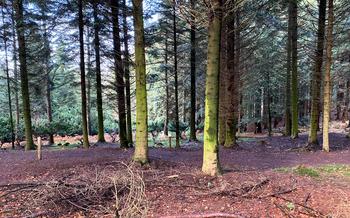
Arboretum Burgholz
Nestled in the picturesque city of Wuppertal, Germany, Arboretum Burgholz stands as a verdant sanctuary, offering a serene escape into the world of plants and nature. With a rich history dating back to the 19th century, this botanical gem has evol...
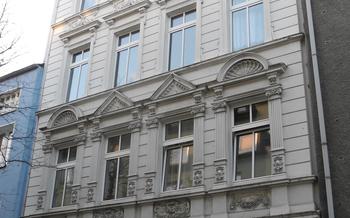
Atelierhaus Wuppertal
The Atelierhaus Wuppertal is a unique and historic building that has played a pivotal role in the development of the local art scene. Constructed in 1927 by the renowned architect Adolf Meyer, the Atelierhaus was conceived as a center for artistic...
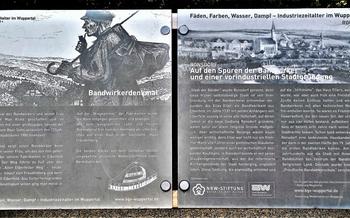
Bandwirkerplatz
Discover the rich history of the Bandwirkerplatz, a vibrant square steeped in the legacy of the Wuppertal Barmen textile industry. Explore the area's cultural significance through its historic buildings, unique architecture, and captivating storie...
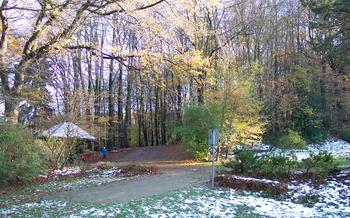
Barmer Forest
Nestled on the outskirts of Wuppertal, the Barmer Forest beckons with its pristine beauty and a wealth of natural wonders. This enchanting woodland dates back centuries, serving as a vital sanctuary for diverse flora and fauna. As one of Germany's...
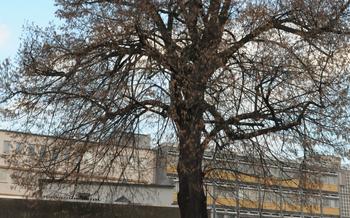
Berger Denkmal (Berger Monument)
The Berger Denkmal (Berger Monument) stands as a poignant symbol of the struggles for freedom and democracy that shaped modern Germany. Erected in 1865, the monument commemorates the fallen heroes of the 1848 revolutions, a pivotal period in Germa...
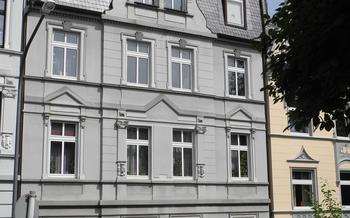
Bergische Museumsbahnen (Bergisch Tram Museum)
The Bergische Museumsbahnen (Bergisch Tram Museum) is a unique and fascinating attraction that offers visitors a glimpse into the rich history of public transportation in Germany. Founded in 1965 by a group of dedicated enthusiasts, the museum is ...
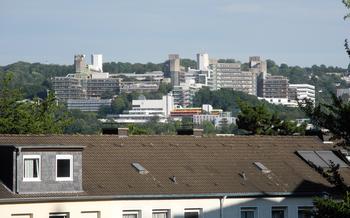
Bergische Universität Wuppertal
Nestled amidst the picturesque landscapes of Wuppertal, the Bergische Universität Wuppertal boasts a serene campus that exudes a blend of history, modernity, and natural beauty. As you step onto the campus, the first thing that catches your eye is...
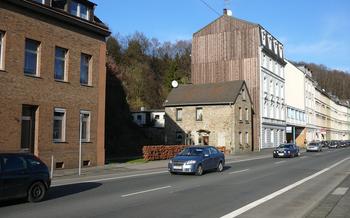
Bergisches Land Nature Park
The Bergisches Land Nature Park, nestled in the heart of Germany, is a haven for nature enthusiasts and outdoor adventurers. Its rich history dates back to the Middle Ages, when the region was shaped by mining and ironworking industries. Today, th...
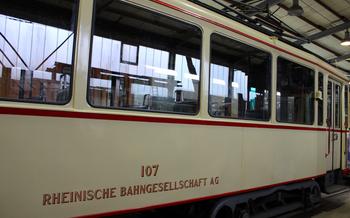
Bergisches Straßenbahnmuseum
A hidden gem nestled in the heart of Wuppertal, Germany, the Bergisches Straßenbahnmuseum is a must-visit destination for anyone interested in trams, transportation history, or simply unique and immersive experiences. This one-of-a-kind museum sho...
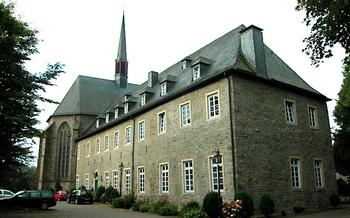
Beyenburg Monastery
The Beyenburg Monastery, nestled amidst the picturesque hills of Wuppertal, holds a significant place in the region's rich tapestry of history. Founded in 1101 by Count Adolf VI of Berg, the monastery initially belonged to the Benedictine order. O...
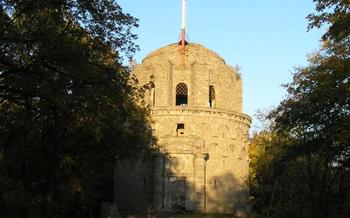
Bismarck Tower
The Bismarck Tower in Wuppertal is a testament to the legacy of Otto von Bismarck, the "Iron Chancellor" who unified Germany in 1871. Built between 1897 and 1900, the tower stands as a symbol of national pride and unity. Inspired by the Iron Rhine...
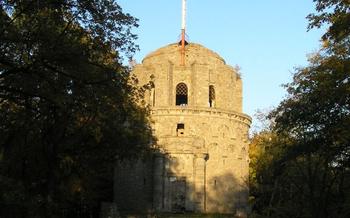
Bismarckturm (Bismarck Tower)
In Wuppertal, nestled atop the Barmer Anlagen, stands the Bismarckturm, a proud testament to the city's rich history and architectural heritage. This colossal monument, rising 21.5 meters above the bustling streets, is a poignant reminder of the B...
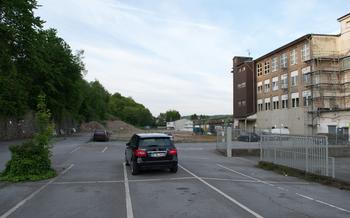
Botanischer Garten Burgholz
The Botanischer Garten Burgholz, nestled in the vibrant city of Wuppertal, Germany, has a rich history intertwined with the passion for horticulture and scientific exploration. Its origins can be traced back to 1898 when the Elberfeld Horticultura...
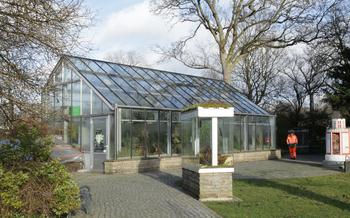
Botanischer Garten Wuppertal (Botanical Garden)
The Botanischer Garten Wuppertal, with its rich history, traces its roots back to 1875. The driving force behind its establishment was the Elberfeld Verschönerungsverein (Elberfeld Beautification Association), a group passionate about enhancing th...
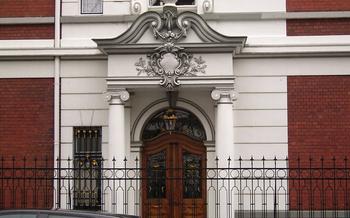
Briller Viertel
Briller Viertel, nestled in the heart of Wuppertal, is a vibrant and diverse neighborhood that exudes a unique blend of history, art, and multiculturalism. Its roots can be traced back to the 19th century, when it served as a residential area for ...
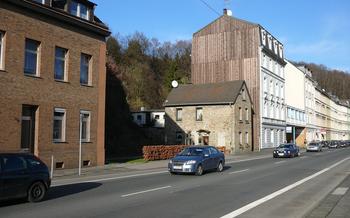
Büchermarkt am Laurentiusplatz (Book Market)
In the vibrant city of Wuppertal, nestled amidst the picturesque landscapes of Germany, lies a hidden gem for bibliophiles and literature enthusiasts alike – the Büchermarkt am Laurentiusplatz. This bustling book market, with its rich history and ...
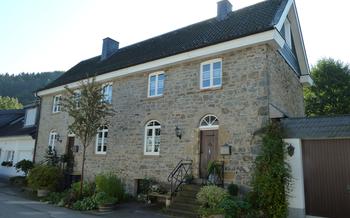
Burgholz Tree Park
Nestled in the heart of bustling Wuppertal, Burgholz Tree Park stands as a tranquil oasis, a verdant haven that invites visitors to reconnect with nature and embrace the serenity of its sprawling landscapes. Its history dates back to the early 19t...
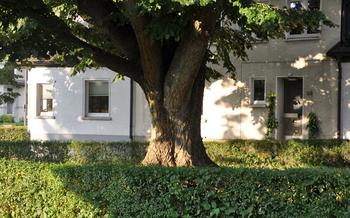
Cable Car Unterbarmen
As one of the oldest operating suspender railways globally, the Cable Car Unterbarmen has been a pivotal landmark in Wuppertal since its inception in 1901. The brainchild of Eugen Langen, a German engineer renowned for his contributions to cable c...
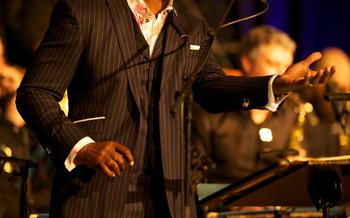
Café Ada
Nestled in the vibrant city of Wuppertal, Café Ada stands as a testament to culinary artistry and historical charm. Established in 1907 by the visionary Ada Müller, this establishment has become an integral part of the city's cultural fabric. Café...
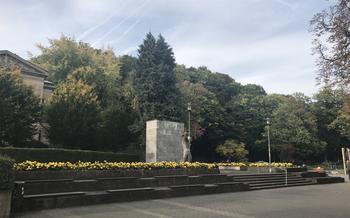
Deweerthscher Garten
The Deweerthscher Garten, also known as the Deweerth's Garden, is a stunning green oasis nestled in the heart of Wuppertal, Germany. Its history dates back to the late 19th century when the Deweerth family, prominent industrialists and art collect...
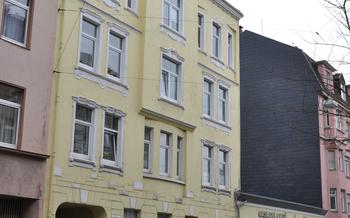
Eisenbahnbrücke Loh (Railroad Bridge Loh)
The Eisenbahnbrücke Loh, also known as the Loh Railway Bridge, is a remarkable piece of German engineering that has stood the test of time. Constructed in 1875, this impressive structure was designed to carry the Eisenbahnstrecke Düsseldorf–Elberf...
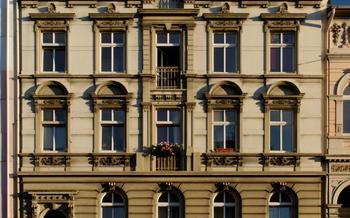
Engels Haus (Engels House)
In the heart of Wuppertal, nestled amidst the city's vibrant tapestry of history and culture, lies the Engels House, a testament to the life and legacy of one of the most influential thinkers of the 19th century - Friedrich Engels. This remarkable...
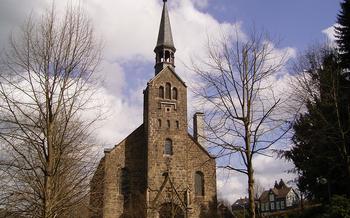
Evangelische Kirche Beyenburg
The Evangelische Kirche Beyenburg stands as a testament to the rich history and architectural heritage of Wuppertal. Built in the 12th century, this Romanesque-style church has undergone several renovations and expansions over the centuries, resul...
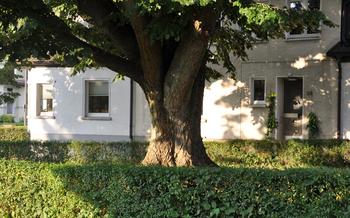
Färberei Kulturzentrum (Cultural Center)
The Färberei Kulturzentrum is renowned for its dedication to independent and arthouse cinema. It serves as a platform for showcasing a diverse range of films from emerging and established filmmakers. Visitors can immerse themselves in the world of...
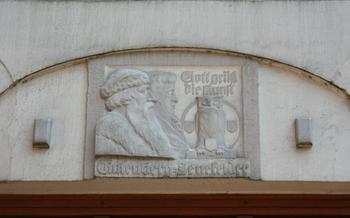
Friedrich Engels Memorial
The Friedrich Engels Memorial in Wuppertal, Germany, stands as a tribute to the life and legacy of one of the most influential figures in the history of social thought and activism. Engels, a close collaborator of Karl Marx, played a pivotal role ...
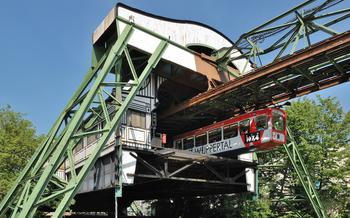
Galerie Gräfrath
Galerie Gräfrath, nestled in the vibrant city of Wuppertal, stands as a testament to the city's rich cultural heritage. Established in 1976, the gallery has played a pivotal role in shaping Wuppertal's contemporary art scene. Its inception was dri...
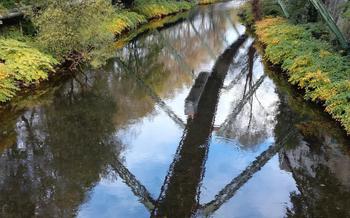
Gelber Sprung (Yellow Jump)
The Gelber Sprung, or Yellow Jump, is an iconic landmark and a symbol of Wuppertal. This unique suspension railway system has been in operation since 1901 and is a marvel of engineering. The Schwebebahn, as it is locally known, runs through the ci...
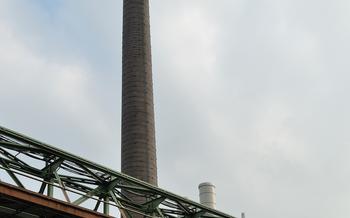
Green Zoo Wuppertal
Nestled in the heart of Wuppertal, Germany, the Green Zoo Wuppertal is a unique and captivating zoological institution that offers visitors an unforgettable encounter with the wonders of the animal kingdom. Founded in 1881, the zoo has a rich hist...
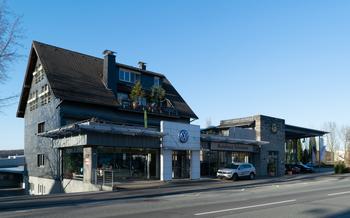
Hatzfeld Trampelpfad (Nature Trail)
Nestled amidst the bustling city of Wuppertal, Germany, lies a hidden gem – the Hatzfeld Trampelpfad, a nature trail that offers a tranquil escape from the urban landscape. Steeped in history, this enchanting trail traces the footsteps of the Hatz...
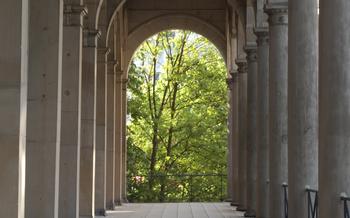
Haus der Jugend Barmen (Youth Center)
The Haus der Jugend Barmen, a vibrant cultural landmark in Wuppertal, Germany, holds a rich history that intertwines with the city's industrial heritage and evolving youth culture. Constructed in 1910 as a textile mill, the building initially serv...
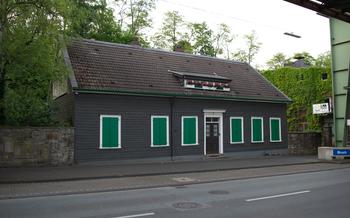
Haus Martfeld (Schwelm, nearby)
Nestled in the picturesque town of Schwelm, just a short distance from Wuppertal, lies the enchanting Haus Martfeld, a magnificent historical mansion that transports visitors back in time to a bygone era. Built in the 16th century, this architectu...
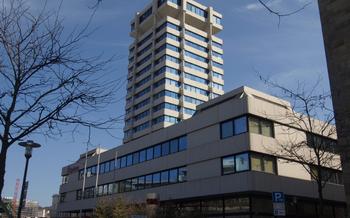
Heimatmuseum Dönberg
Wuppertal, a city located in western Germany, boasts a rich history and cultural heritage. The Heimatmuseum Dönberg, nestled in the heart of Wuppertal, plays a pivotal role in preserving and showcasing this heritage. The museum finds its roots in ...
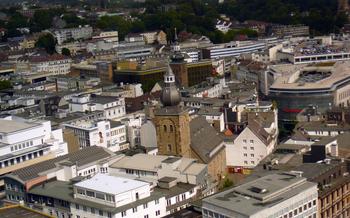
Historic City Hall Barmen
The Historic City Hall Barmen offers guided tours that provide an immersive journey into its history and significance. These tours are available in German and English and typically last for about an hour. Led by knowledgeable guides, visitors are ...
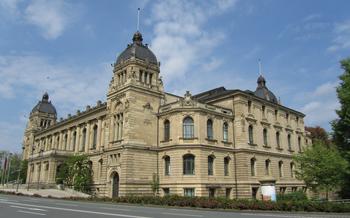
Historische Stadthalle Wuppertal
The Historische Stadthalle Wuppertal, also known as the Stadthalle Wuppertal, is an architectural masterpiece that stands as a testament to the city's rich cultural heritage. Built between 1910 and 1913, this magnificent building is a stunning exa...
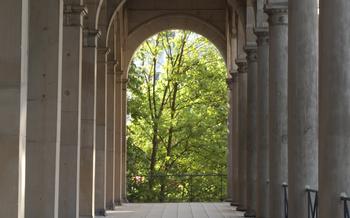
Kaiser's Wagen Historical Tours
Embark on a captivating journey through time as you step aboard the meticulously restored Kaiser's Wagen, a magnificent 19th-century imperial carriage. This unique experience offers a rare glimpse into Wuppertal's rich history, allowing you to exp...
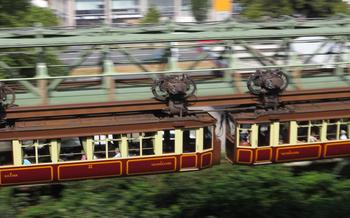
Kaiserwagen of the Wuppertal Suspension Railway
A marvel of 19th-century engineering, the Wuppertal Suspension Railway stands as a testament to German ingenuity and innovation. This unique transportation system, the only one of its kind in the country, was the brainchild of inventor Eugen Lange...
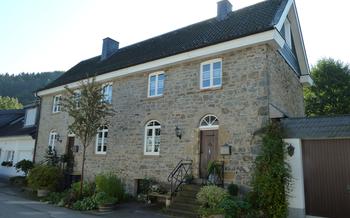
Kalktrittstein Natural Monument
The Kalktrittstein Natural Monument is a site of immense historical significance, boasting a rich tapestry of geological formations, industrial heritage, and historical landmarks. Its unique rock formations, shaped by millions of years of geologic...
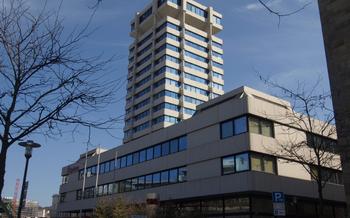
Kleines Theater Wuppertal
The Kleines Theater Wuppertal, nestled amidst the vibrant city of Wuppertal, Germany, boasts a rich history that spans over six decades. Founded in 1959 by a group of passionate theatre enthusiasts, the theatre has been a cornerstone of the city's...
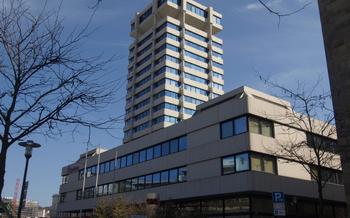
Knipex Factory Tour (Werkzeugfabrik)
Knipex, a world-renowned manufacturer of high-quality tools, traces its roots back to 1882 when C. Gustav Putsch founded a small workshop in Cronenberg, Germany. From its humble beginnings as a producer of pliers and wrenches, Knipex evolved into ...
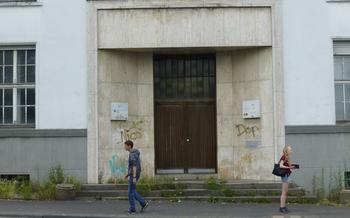
Kontakthof with works by Pina Bausch
In the heart of North Rhine-Westphalia, Germany, lies the city of Wuppertal, a vibrant urban center steeped in history, innovation, and artistic expression. Once a thriving industrial hub, Wuppertal has undergone a remarkable transformation, emerg...
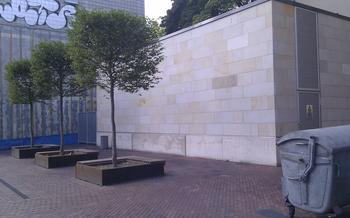
Kunsthalle Barmen
The Kunsthalle Barmen, an esteemed art institution in Wuppertal, Germany, boasts a rich history deeply intertwined with the city's cultural landscape. Its origins trace back to 1890 when a group of art enthusiasts, led by the influential art criti...
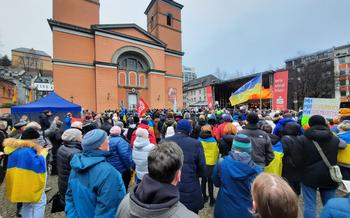
Laurentiusplatz
St. Laurentius Church, prominently situated in Laurentiusplatz, stands as a testament to Wuppertal's rich history and enduring spirit. Constructed in the 13th century in the Gothic style, it has undergone several renovations and expansions over th...
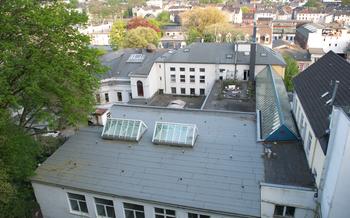
Lichtscheid Denkmal
At the heart of Wuppertal, Germany, stands the Lichtscheid Denkmal, a monument that embodies the city's rich industrial heritage and symbolizes unity and progress. Unveiled in 1901, this impressive structure commemorates the merger of Barmen and E...
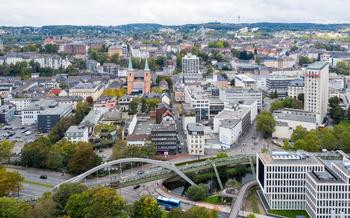
Luisenviertel
In the heart of Wuppertal, nestled between the vibrant city center and the scenic Wupper river, lies Luisenviertel, a charming historic district that offers a unique blend of cultural heritage, architectural wonders, and modern-day allure. Once a ...
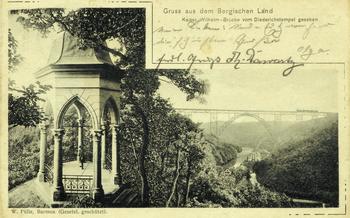
Müngstener Brücke (Müngsten Bridge)
The Müngstener Brücke, towering over the Wupper Valley in Germany, stands as a testament to human ingenuity and engineering prowess. Completed in 1897, it holds the distinction of being Germany's highest railway bridge, stretching an impressive 10...
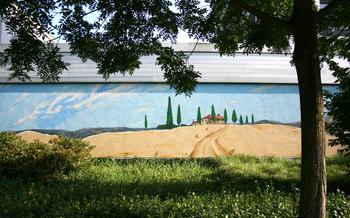
Murals of Wuppertal
Wuppertal, a city in western Germany, boasts a rich industrial heritage that dates back to the 19th century. During that era, the city became a hub for the textile industry, attracting workers from all over Europe. The influx of people from divers...
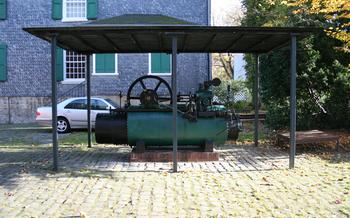
Museum für Frühindustrialisierung
Journey back in time to the birthplace of industrialization at the Museum für Frühindustrialisierung in Wuppertal. This fascinating museum offers a glimpse into the origins of the Industrial Revolution, showcasing interactive displays that bring t...
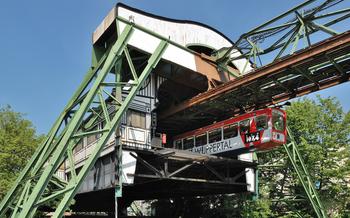
Neanderthal Museum (in nearby Mettmann)
The Neanderthal Museum in Mettmann, Germany, is a captivating exploration into the origins of humankind. Housed in a striking modern building, the museum showcases the fascinating story of our ancestors, the Neanderthals, who once roamed the earth...
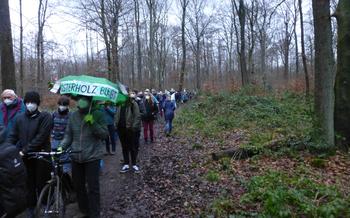
Osterholz Wald
Nestled in the heart of Wuppertal, Osterholz Wald beckons nature enthusiasts, outdoor adventurers, and those seeking a peaceful respite from the urban hustle. This sprawling forest, spanning over 130 hectares, holds a unique charm that captivates ...
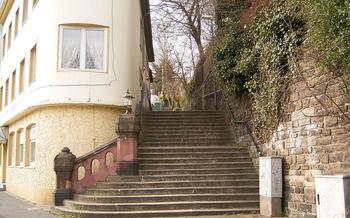
Rathaus Galerie Shopping Center
A haven for shopping enthusiasts, the awe-inspiring Rathaus Galerie in Wuppertal, Germany, stands as a testament to architectural brilliance and retail indulgence. Born from a visionary concept in 1975, this exceptional shopping center has evolved...
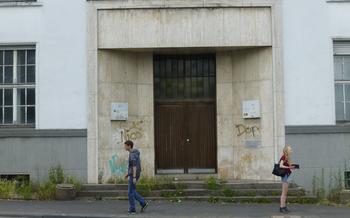
Raukunst Street Art Route
One of the most striking features of the Raukunst Street Art Route is its artistic diversity. The route showcases a wide range of styles and techniques, from traditional graffiti and stencils to intricate murals and installations. This eclectic mi...
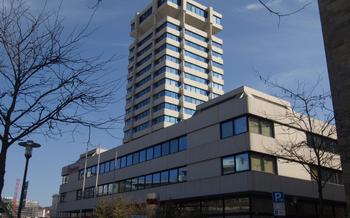
Rietberg Monorail Station
The Rietberg Monorail Station, a striking architectural gem in Wuppertal, Germany, holds a significant place in the city's transportation history. Built in 1901, it was one of the first elevated railway stations in the world, showcasing the innova...
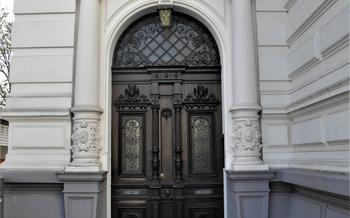
Ronsdorf Dam
The Ronsdorf Dam holds a significant place in the history of Wuppertal, Germany. Constructed during the Industrial Revolution in the late 19th century, it played a crucial role in supplying water to the rapidly growing city, which was an important...
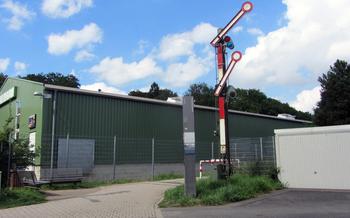
Sambatrasse
The Sambatrasse in Wuppertal, Germany, is a remarkable transformation of a former railway line into a vibrant green corridor, blending nature, history, and art. This 23-kilometer-long trail meanders alongside the picturesque Wupper River, offering...
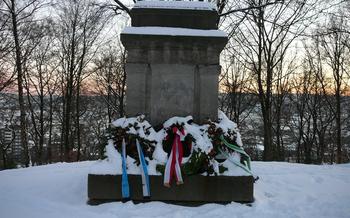
Sankt Johann Baptist Kirche
The Sankt Johann Baptist Kirche in Wuppertal, Germany, stands as a testament to the rich history of the region. Its roots can be traced back to the 13th century, when it was first constructed as a humble wooden chapel. Over the centuries, the chur...
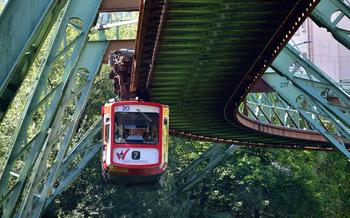
Schwebebahn (Wuppertal Suspension Railway)
The Wuppertal Suspension Railway, or Schwebebahn as it is affectionately called by locals, is an iconic landmark that has been shaping the city's skyline since its inception in 1901. This engineering marvel was born out of necessity, as the steep ...

Sculpture "Mann mit Vogel" (Man with Bird)
The "Mann mit Vogel" sculpture showcases the unique artistic style and techniques of its creator, Gerhard Marcks. Marcks was known for his minimalist approach and his ability to convey complex emotions and narratives through simple forms. In this ...
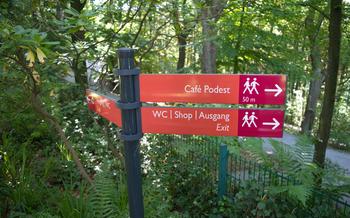
Skulpturenpark Waldfrieden
Nestled in the picturesque hills of Wuppertal, Germany, lies Skulpturenpark Waldfrieden, a unique oasis where art and nature harmoniously coexist. Once the private estate of the von Carnap family, this extraordinary park was transformed into a pub...
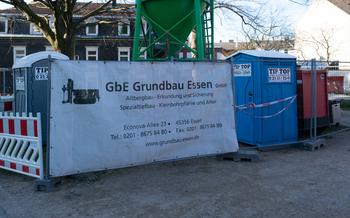
Sprockhöveler Windmühle (nearby windmill)
The Sprockhöveler Windmühle, a majestic windmill located in the picturesque town of Sprockhövel, Germany, stands as a testament to the country's commitment to renewable energy and sustainable practices. With its impressive height and unique design...
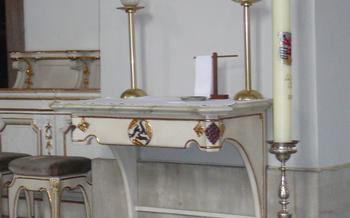
St. Laurentius Church
St. Laurentius Church, with its rich history and cultural significance, stands as a testament to Wuppertal's architectural heritage. Founded in the 12th century, the church was initially built as a Romanesque structure and subsequently underwent s...
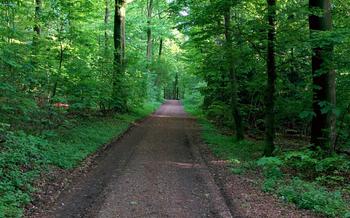
Sudberg Plateau
The Sudberg Plateau, nestled amidst the picturesque landscapes of Wuppertal, Germany, stands as a testament to nature's boundless splendor. Its historical significance dates back centuries, with the plateau serving as a strategic vantage point dur...
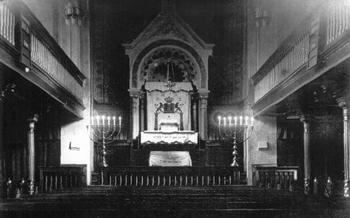
The Old Synagogue
Wuppertal is a city located in the western part of Germany, in the state of North Rhine-Westphalia. It is situated on the banks of the Wupper River, in a valley surrounded by hills. The city is known for its unique topography, with its streets and...
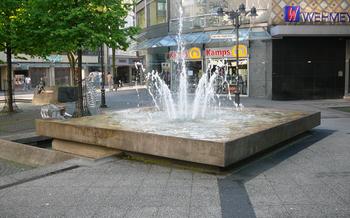
The Von der Heydt Fountain
In the heart of Wuppertal's Elberfeld district, a majestic bronze fountain stands as a testament to the city's rich history and industrial heritage. Commissioned by textile magnate Eduard von der Heydt in the late 19th century, the Von der Heydt F...
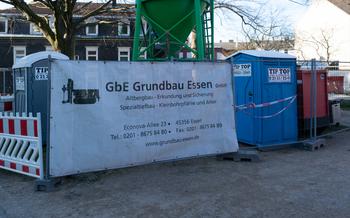
The Witches' Tower (Hexenturm)
The Witches' Tower (Hexenturm) stands as a unique architectural marvel, showcasing several distinctive features that set it apart from other towers of its kind. Constructed using sturdy local sandstone, the tower boasts a cylindrical shape with a ...
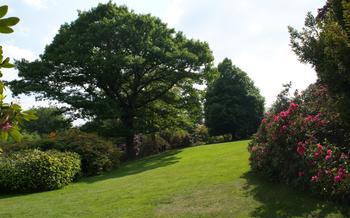
The Wuppertal Clock Museum (Uhrenmuseum)
Nestled in the heart of Wuppertal, Germany, the Wuppertal Clock Museum (Uhrenmuseum) stands as a testament to the rich history of timekeeping. Established in 1977, the museum houses a remarkable collection of timepieces that spans centuries and co...
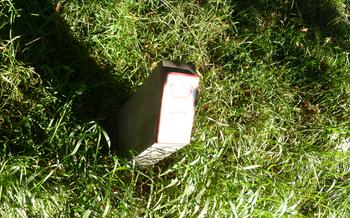
Toelleturm and Barmer Anlagen
Wuppertal's iconic landmark, the Toelleturm, stands proudly atop a hill, offering breathtaking panoramic views of the city and beyond. Constructed in 1887, this 35-meter-tall tower combines intricate architecture with modern functionality, emergin...
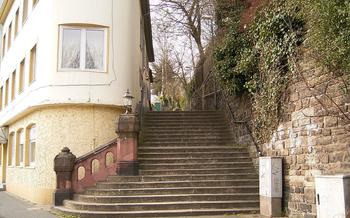
University Botanical Garden
In the bustling city of Wuppertal, a verdant haven awaits nature enthusiasts and tranquility seekers. The University Botanical Garden, nestled amidst the urban landscape, offers a sanctuary of diverse plant life, scientific exploration, and serene...
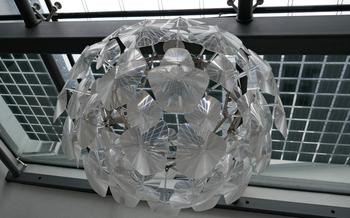
Villa Media
Villa Media is a magnificent architectural landmark in the heart of Wuppertal, Germany. Originally built between 1906 and 1908 as a private residence, this grand villa soon became an iconic symbol of the city's rich history and cultural heritage. ...
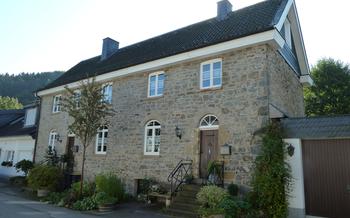
Vohwinkel Flea Market
Nestled in the heart of Wuppertal's Vohwinkel district lies a vibrant tapestry of history, culture, and unique finds—the Vohwinkel Flea Market. With a rich legacy spanning over a century, this bustling market has become a beloved institution among...
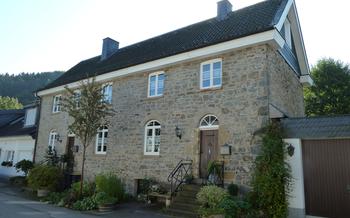
Von der Heydt Museum Ronsdorf
The Von der Heydt Museum Ronsdorf is a renowned art museum situated in the picturesque city of Wuppertal, Germany. It holds a significant place in the cultural landscape of the region and offers a rich journey through art and history. Founded in 1...
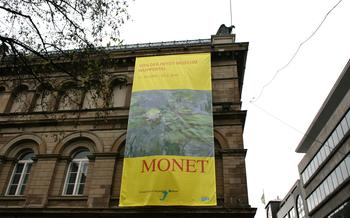
Von der Heydt Museum
The Von der Heydt Museum, a cultural gem nestled in the heart of Wuppertal, Germany, boasts a rich history that spans over a century. Its origins can be traced back to the private art collection of Eduard von der Heydt, a renowned art connoisseur ...
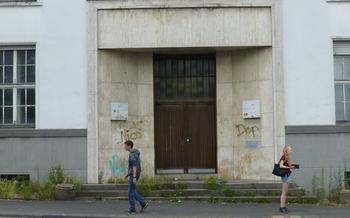
Waldkletterpark Velbert Langenberg (nearby)
The Waldkletterpark Velbert Langenberg offers a diverse range of climbing courses designed to cater to climbers of all ages and skill levels. Whether you're a seasoned pro or a complete beginner, there's a course that's perfect for you.
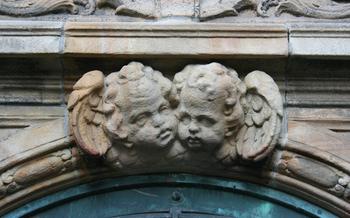
Wupperfeld Church
Nestled in the heart of Wuppertal, the Wupperfeld Church stands as a testament to centuries of religious devotion and architectural heritage. Dating back to the 17th century, the church played a pivotal role in the Protestant Reformation, serving ...
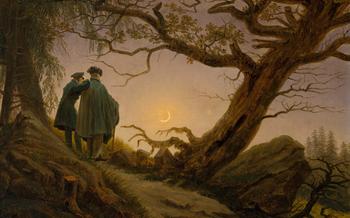
Wuppertal Art Gallery
The Von der Heydt Museum, a treasure trove of artistic wonders, first opened its doors in 1902, thanks to the vision of a group of discerning art collectors, including Eduard von der Heydt, who sought to share their passion with the world. Over th...
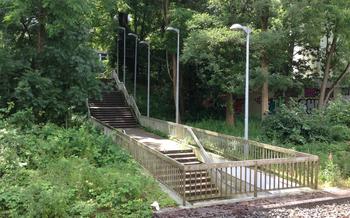
Wuppertal Barmen Bahnhof
Wuppertal Barmen Bahnhof, a majestic edifice standing as a testament to the city's industrial prowess and architectural heritage, holds a significant place in the annals of Wuppertal. Constructed between 1865 and 1883, this grandiose station was i...
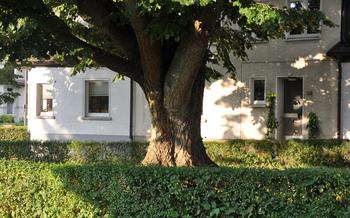
Wuppertal Beyenburg Historic Center
In the heart of Wuppertal, Germany, lies the Beyenburg Historic Center, a captivating and charming district that invites visitors on a journey through history. Once home to the Counts of Berg, this medieval town center has preserved its rich herit...
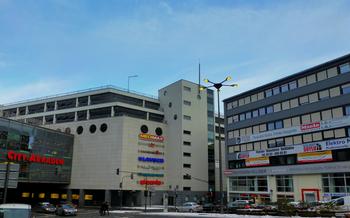
Wuppertal City Archive
The Wuppertal City Archive is a treasure trove of historical information, offering a fascinating glimpse into the past of Wuppertal and the surrounding region. The archive houses a vast collection of documents, photographs, and artifacts that chro...
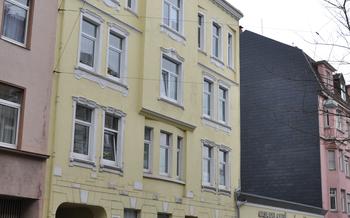
Wuppertal Dance Theatre (Tanztheater Wuppertal)
The Wuppertal Dance Theatre, known as Tanztheater Wuppertal, is a renowned contemporary dance company and venue located in the city of Wuppertal, Germany. Founded in 1973 by the visionary choreographer Pina Bausch, Tanztheater Wuppertal has become...
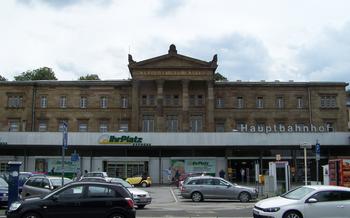
Wuppertal Hauptbahnhof (Central Station)
Wuppertal Hauptbahnhof, also known as Wuppertal Central Station, stands as a magnificent gateway to the city of Wuppertal, Germany. Its history dates back to the 19th century, when the industrial revolution spurred the need for efficient transport...
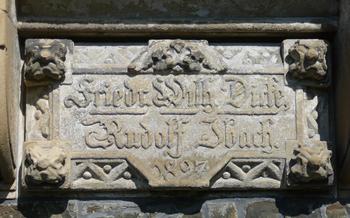
Wuppertal Institute for Climate, Environment and Energy
The Wuppertal Institute for Climate, Environment and Energy has emerged as a prominent player in the global arena of sustainability research. Since its inception in 1991, the institute has dedicated itself to pioneering research, transformative ed...
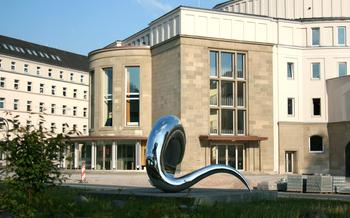
Wuppertal Opera House
The Wuppertal Opera House, a grand architectural masterpiece standing tall in the heart of the city, boasts a rich history deeply intertwined with the cultural tapestry of Wuppertal. Constructed in the early 20th century, this iconic venue has wit...
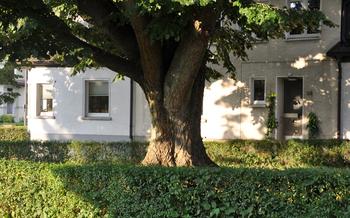
Wuppertal Pina Bausch Centre (under construction)
The Wuppertal Pina Bausch Center, currently under construction in the vibrant German city of Wuppertal, stands as a testament to the enduring legacy of the legendary choreographer Pina Bausch. This state-of-the-art facility, designed by renowned a...
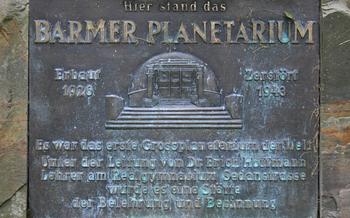
Wuppertal Planetarium
Nestled in the vibrant city of Wuppertal, Germany, the Wuppertal Planetarium stands as a beacon of astronomical knowledge and wonder. Since its inception in 1964, the planetarium has captivated visitors of all ages with its immersive exhibits, eng...
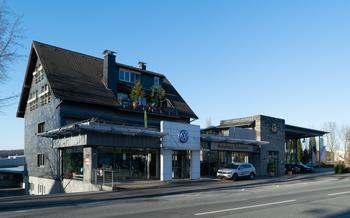
Wuppertal Suspension Line East
The Wuppertal Suspension Line East, a remarkable feat of engineering, has a rich and captivating history. Its roots can be traced back to 1898 when Eugen Langen, a German engineer, proposed the idea of a suspended railway system to connect the cit...
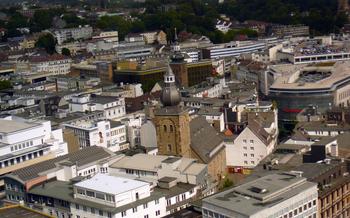
Wuppertal Suspension Railway Museum
The Wuppertal Suspension Railway holds a pivotal place in the history of transportation engineering. Inaugurated in 1901, it stands as the world's oldest electrically powered suspension railway and the only one still in operation. The brainchild o...
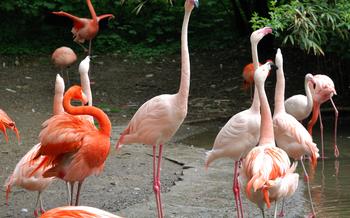
Wuppertal Zoo
Established in 1881, the Wuppertal Zoo is a beloved institution dedicated to animal welfare, conservation, and education. Nestled amidst the picturesque hills of Wuppertal, the zoo spans over 24 acres and houses over 5,000 animals from all corners...
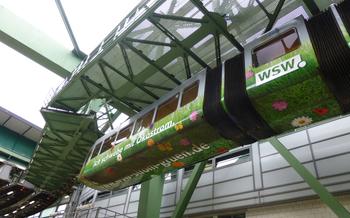
Wuppertaler Schwebebahn Kaiserwagen
Wuppertal, a city nestled amidst picturesque landscapes, boasts a unique landmark that has become synonymous with its identity – the Wuppertaler Schwebebahn. This iconic suspension railway, fondly known as the Kaiserwagen, has captured the hearts ...
